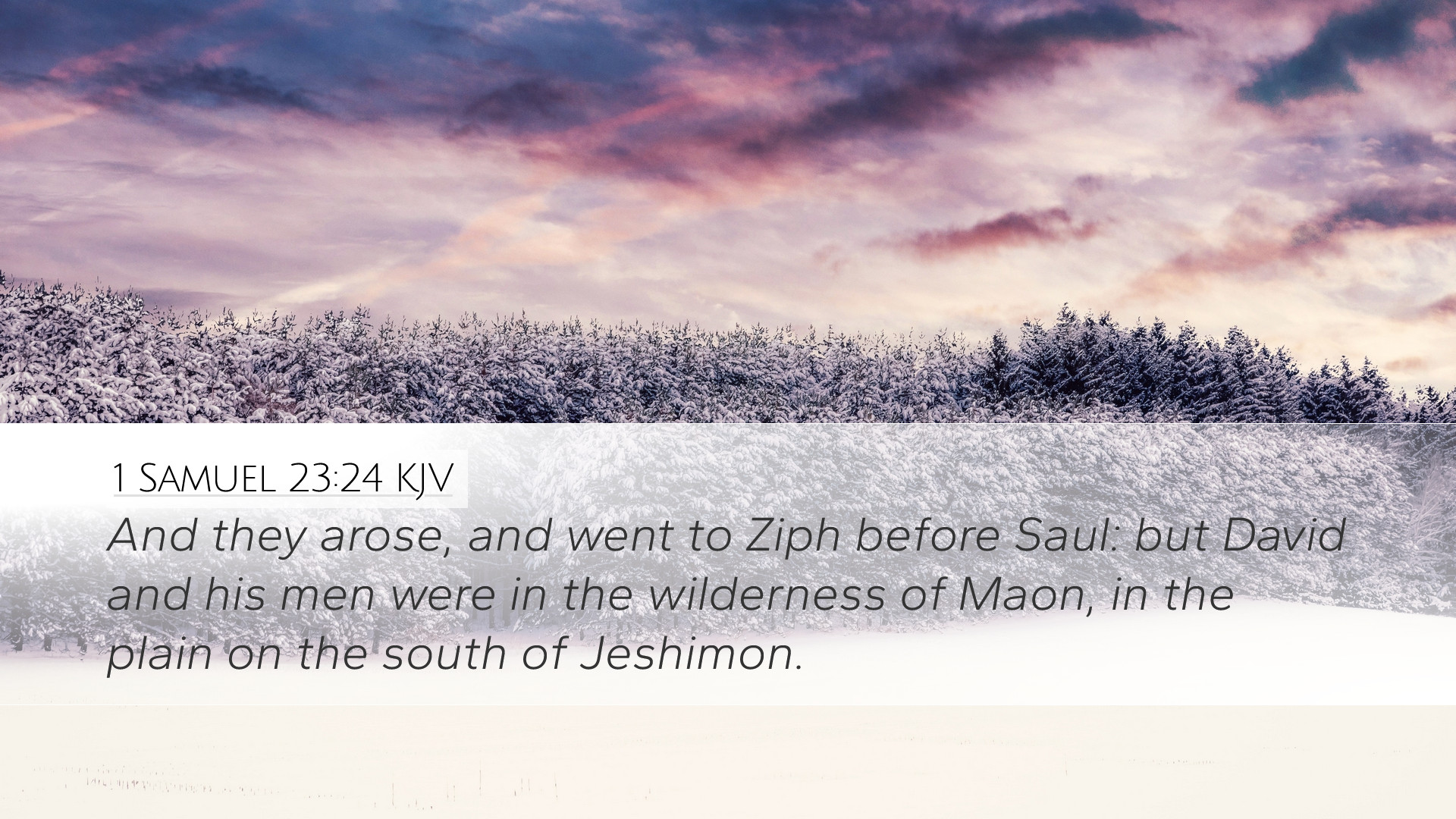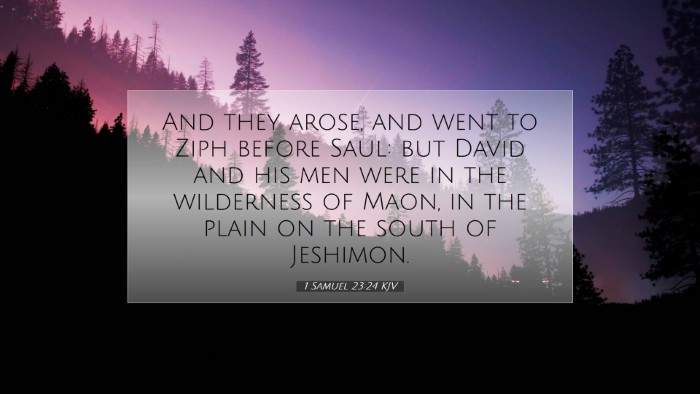Commentary on 1 Samuel 23:24
Verse Reference: 1 Samuel 23:24 - "And they arose and went to Ziph before Saul: but David and his men were in the wilderness of Maon, in the plain on the south of Jeshimon."
Context and Background
The narrative surrounding 1 Samuel 23:24 is set during a tumultuous period in the history of Israel. The text describes David, who has been anointed by Samuel to be king but is currently fleeing from King Saul. David's predicament illustrates themes of divine providence, the struggle for power, and the preservation of God's chosen servant.
Historical Insights
According to Matthew Henry's Commentary, the Ziphites, who are mentioned in this verse, represent a group of citizens who betray David to Saul, despite David's previous protection of their land from Philistine incursions. This act of betrayal emphasizes the gravity of David's situation, illustrating how former allies can become adversaries in times of crisis.
Albert Barnes notes that the wilderness of Maon and the plain of Jeshimon serve as strategic locations that David must navigate to evade Saul’s pursuit. The geography plays a critical role in the narrative, as it highlights David's resourcefulness and reliance on divine guidance to escape his enemy.
Theological Reflections
Trust in Divine Guidance: The story captures the essence of trusting in God amidst adversities. David’s decision to move to Maon indicates his wisdom and his intent to seek refuge in God rather than rely on human alliances.
Adam Clarke further elaborates on this by mentioning that despite the ill-intentioned actions of the Ziphites, God maintains His protective hand over David. This highlights the theme of God’s sovereignty over human affairs, where He uses even negative circumstances to fulfill His purpose.
Character Study: David
David is portrayed not just as a fugitive but as a leader facing trials that will forge his character. As noted by Matthew Henry, his ability to remain composed in the face of betrayal and danger reflects his deep faith and commitment to the Lord. The text indicates a period of intense personal struggle, yet David remains steadfast, seeking God for strength and guidance.
This character study is instrumental for pastoral teaching, as it encourages believers to remain faithful under persecution and to trust God in all circumstances.
Practical Applications for Today
- Facing Betrayal: The betrayal David experiences reminds us that even those closest to us may fail or turn against us. Pastors can draw applications on forgiveness and resilience.
- Seeking Refuge: Just as David sought the wilderness of Maon for refuge, believers are reminded to turn to God during difficult times, knowing that He is a safe haven.
- God’s Protection: The involvement of divine providence in David's life reassures us of God's unchanging nature. He watches over His people, even when it seems the world has turned against them.
- Leadership Through Crisis: David's circumstances serve as a model for leaders who face opposition and uncertainty. The narrative encourages the development of patience, prayer, and strategic discernment.
Conclusion
1 Samuel 23:24 serves not merely as a historical account but as a profound reminder of God's sovereignty, the challenges of loyalty, and the nature of true leadership under pressure. As we consider this verse, we acknowledge the depths of David's faith and the incredible lessons we can glean; trusting God amidst the dangers and complexities of life is essential for faith development.
In this manner, this passage resonates with pastors, students, theologians, and biblical scholars, as it encapsulates timeless truths relevant to every believer's journey.


